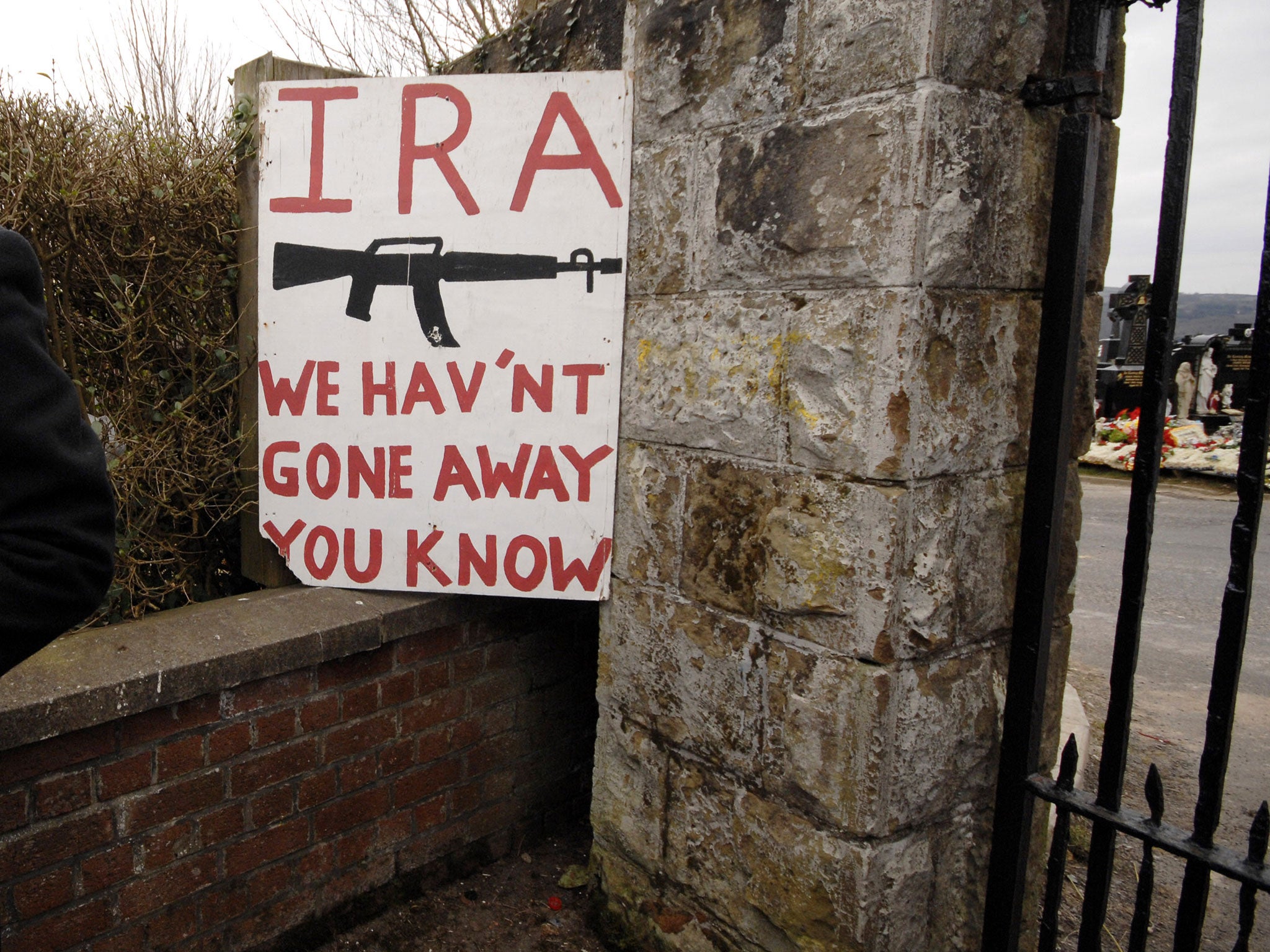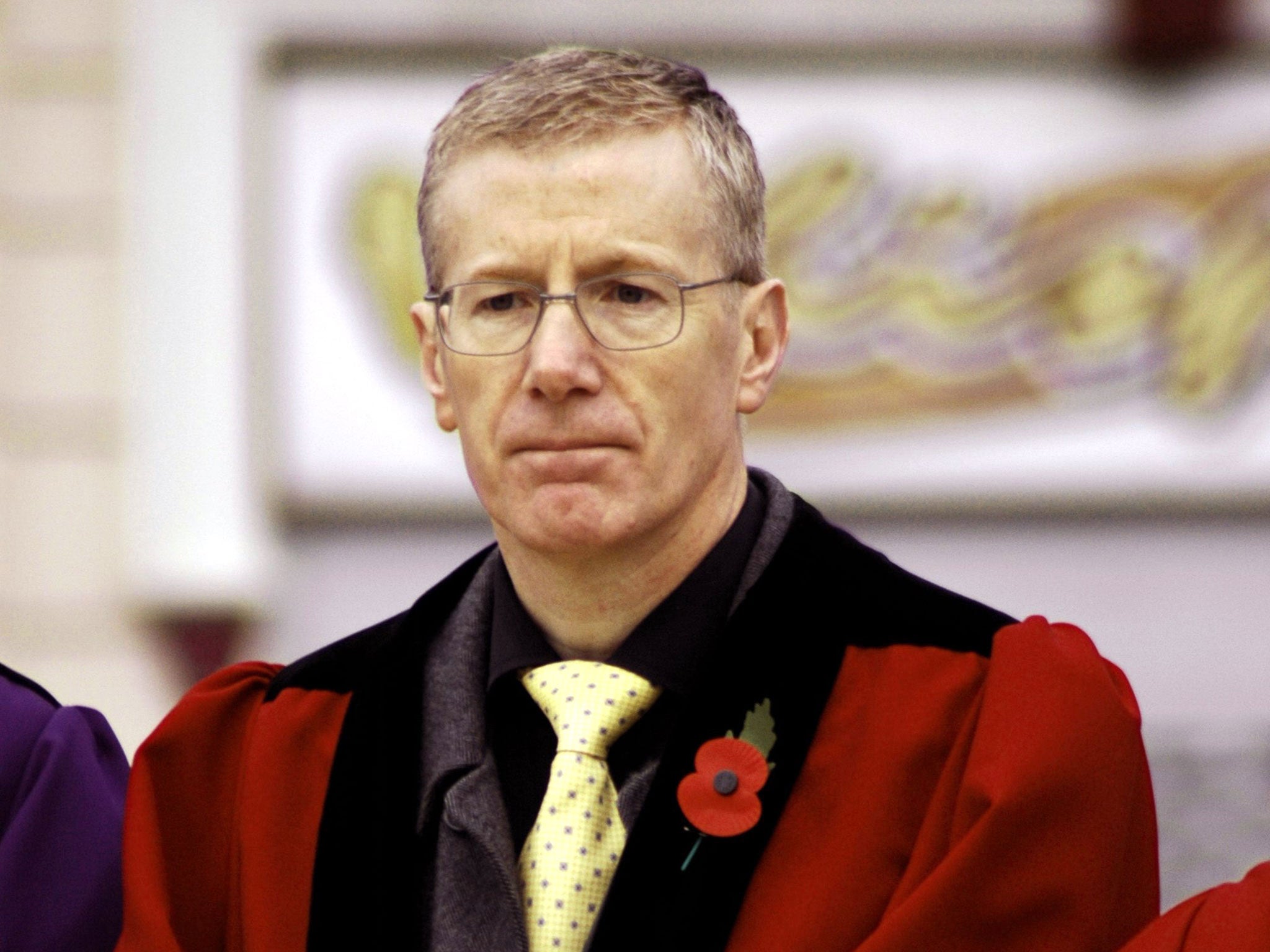IRA man accused of rape ‘threatened to expose informants to stop retribution’
Exclusive: Man alleged to have carried out assaults while staying at 'safe houses' in Northern Ireland and Irish Republic in the 1990s

An IRA operative accused of committing sex crimes halted retribution against him by threatening to expose informants in the terror group’s ranks, it is claimed.
The man is alleged to have carried out serious assaults, including the rape of a 12-year-old boy, while he was staying at “safe houses” in Northern Ireland and the Irish Republic during the 1990s.
The terror group was notorious for its use of punishment squads to mete out rough justice in the form of beatings and killings of those within its own ranks judged to have broken its code of conduct.
A former IRA member now claims that the alleged rapist was able to avoid any such action against him after he was made privy to the contents of documents stolen in a 2002 burglary on the headquarters of the then Royal Ulster Constabulary.
The material contained the encrypted code names of dozens of claimed Special Branch or MI5 informants within the IRA. The papers were deciphered by an IRA team set up to identify the informants.
The continuing significance of the stolen Castlereagh papers was underlined last week when a leak from the documents sparked allegations that the terrorist who planned the Shankill Road bombing in 1993 was an agent for the security forces.
The Independent has been told that the alleged IRA rapist obtained the details of the Castlereagh documents from a family member with connections to the team of mole hunters brought in by the terror group to identify the informants listed by the RUC.
When the families of the alleged rapist’s victims eventually came forward with complaints in the early 2000s, he was confronted by his IRA superiors. He then is said to have threatened to release the informants’ names unless an internal investigation against him and any reprisals were halted. After striking a deal with senior IRA figures, it is claimed the man was chaperoned by the terror group to ensure his information remained secret.
A former IRA member, who knew the alleged rapist, said: “The IRA was boxed in by this boy. They had to ‘lose’ him, then deny all knowledge of him. They moved him all around Ireland and even paid to move him to England until it all died down.”

With the peace process under way and faced with the unpalatable prospect of having to acknowledge the apparent extent of penetration of its ranks by the security forces, the IRA largely abandoned its policy of eliminating informants and gave those identified from the Castlereagh papers an amnesty to remain with their families in return for their silence.
The claims threaten to revive a dark chapter in the republican movement’s recent history arising from the paramilitaries’ practice of moving operatives around safe houses. Victims have complained that some IRA members used the network as an opportunity to prey on their host families and that the terror group then covered up subsequent complaints.
In 2013, the Unionist MP Gregory Campbell told the House of Commons that there had been up to 100 victims of sexual abuse and he was aware of claims that a “fixed committee” had been set up within the republican movement to study those claims.
Sinn Fein and its leader Gerry Adams have strongly denied that the party ever concealed the identity of alleged abusers, insisting that all information passed to it has been submitted to the Garda Siochana in the Irish Republic or the Police Service of Northern Ireland for investigation. The Gardai acknowledged last year that it was investigating a list of the names of alleged abusers which was sent anonymously to Mr Adams and passed on by him.
Last year a man in the Irish Republic came forward with claims that he had been raped at the age of 17 by a Belfast-based paramilitary given sanctuary by his family in the 1990s.
Paudie McGahon, from County Louth, close to the Ulster border, told the BBC that after the attack his rapist had told him: “Listen to me, if you ever open your mouth about this to anybody you’ll be found on the border roads.”
The father-of-three said that he eventually made his complaint known within republican circles in 2002. An IRA “kangaroo court” was held in his home and he was offered the option of having his alleged attacker shot or forced into exile in return for not approaching the authorities.
A subsequent complaint from Mr McGahon about the alleged rape and claimed cover-up is now being investigated by the Irish police.
Mr McGahon came forward following the case of Mairia Cahill, whose great-uncle Joe was one of the founders of the Provisional IRA.
Ms Cahill, who is now a senator in the Irish parliament, publicly accused the organisation in 2014 of covering up her alleged rape by a senior IRA figure in Belfast when she was a teenager by organising another kangaroo court in which she was forced to confront her claimed attacker.
The case was eventually investigated by police but a prosecution collapsed after Ms Cahill and two other complainants withdrew their evidence.
A report by Keir Starmer, the former Director of Public Prosecutions for England and Wales, found last year that Ms Cahill and the two other alleged victims had been let down by more than a dozen failings in the handling of their cases and their withdrawal from the prosecutions had been “almost inevitable”.